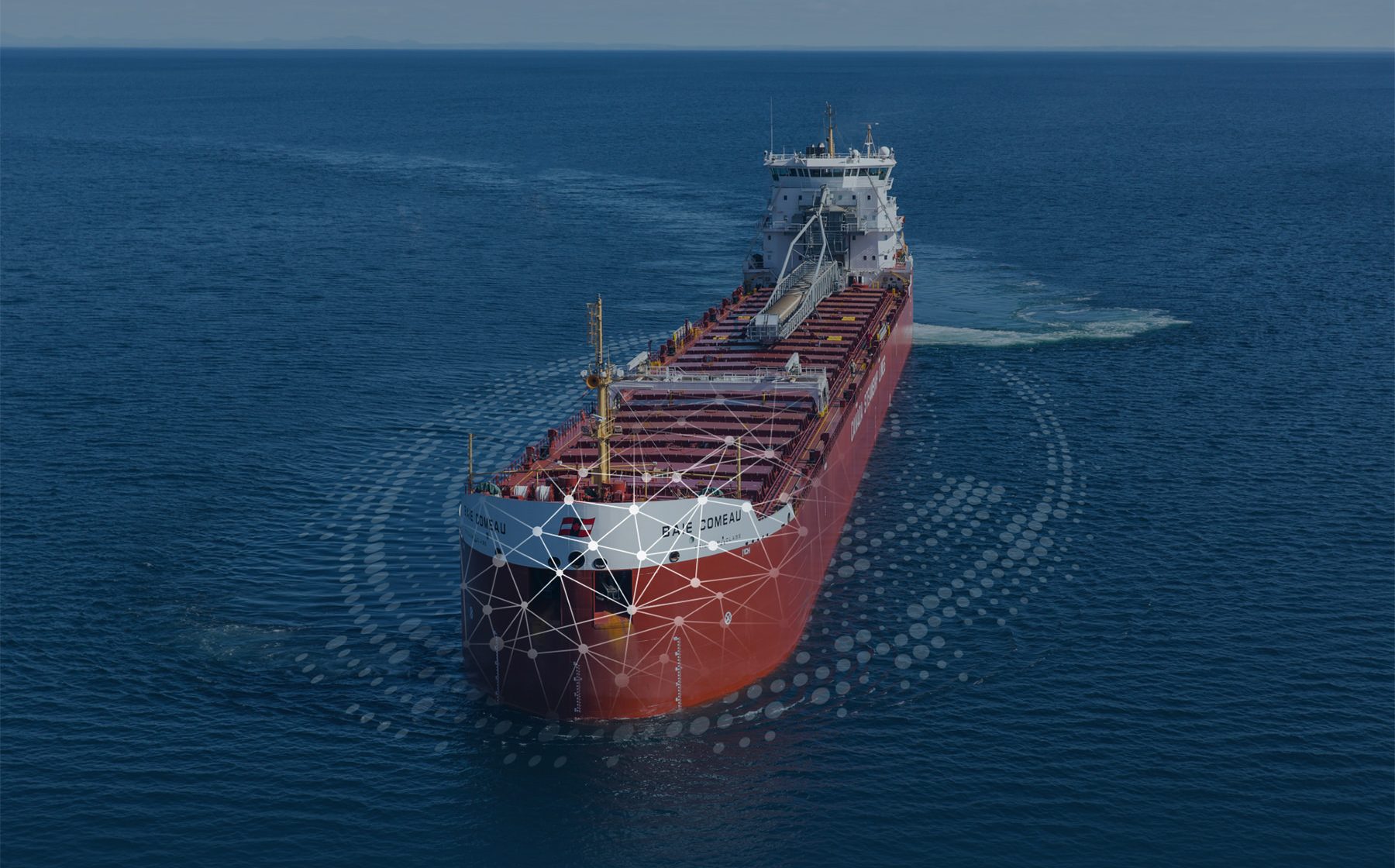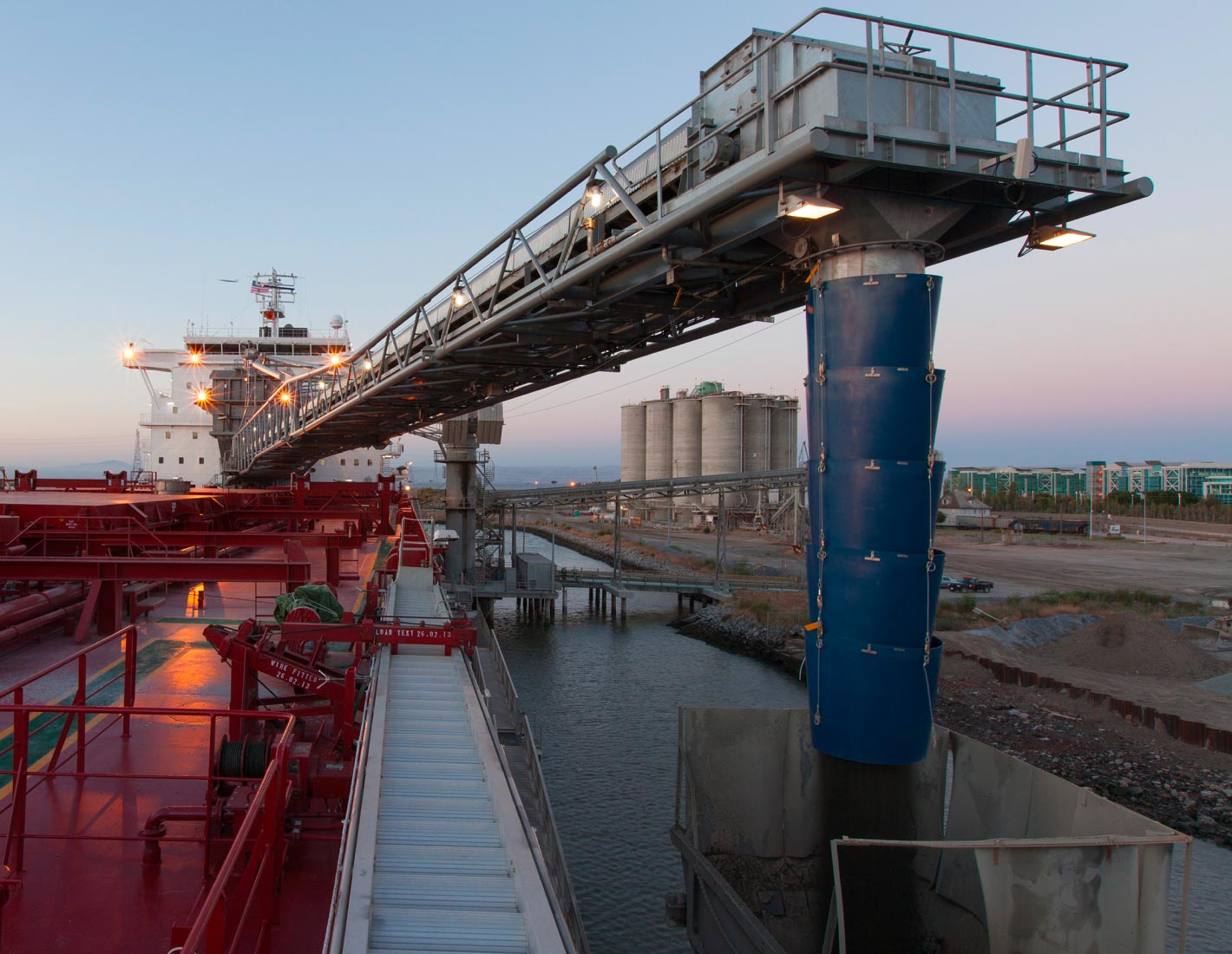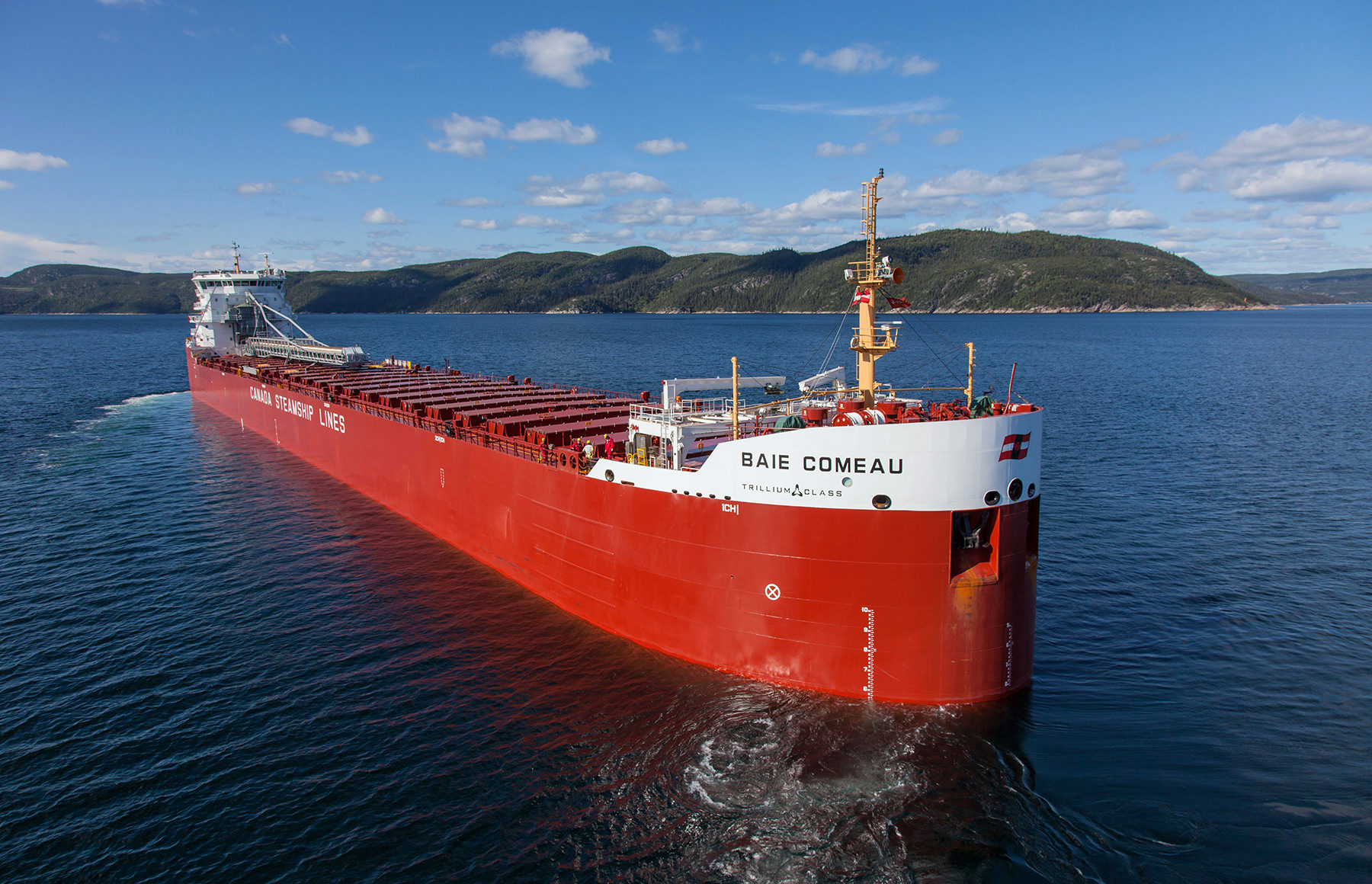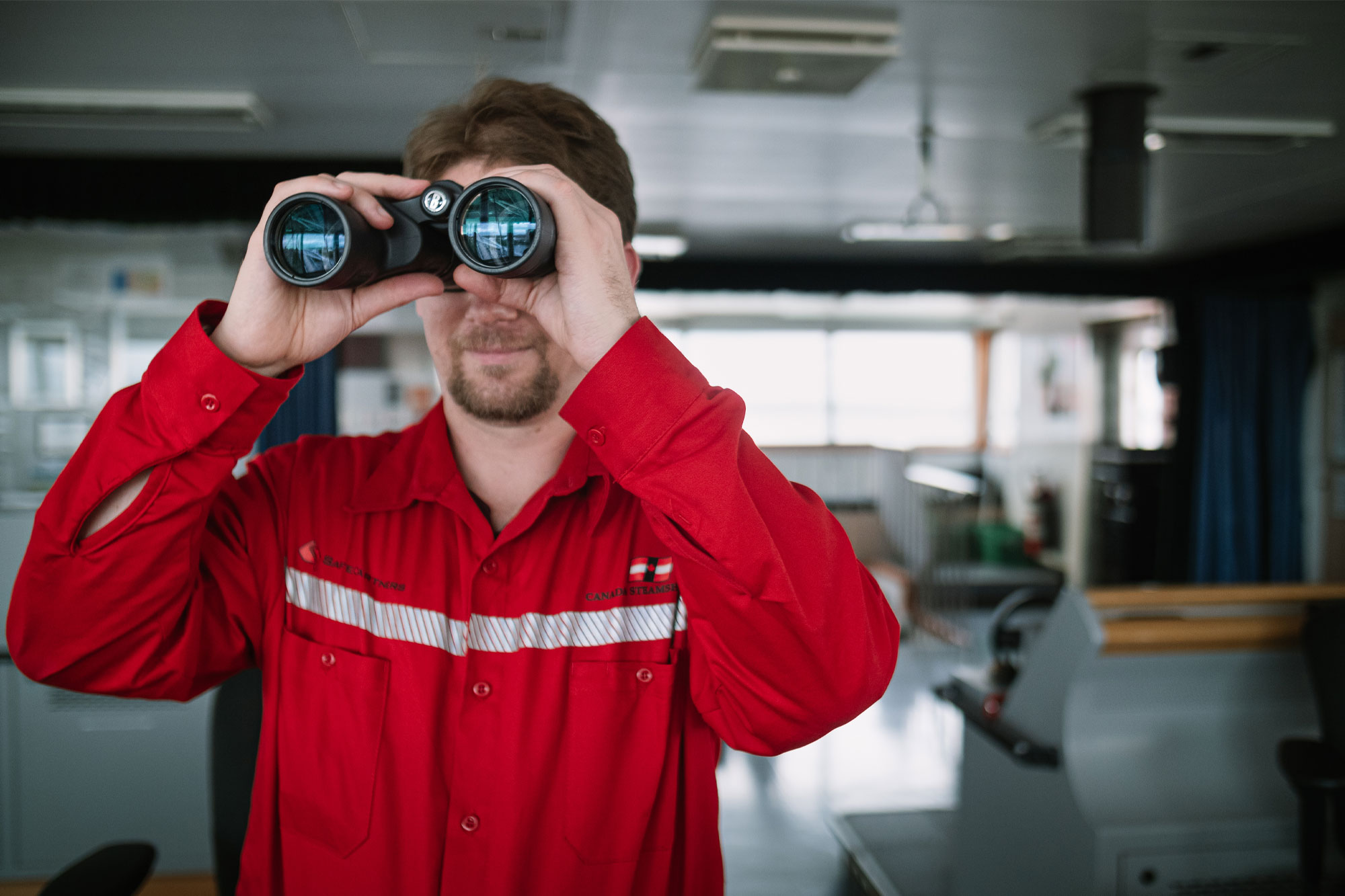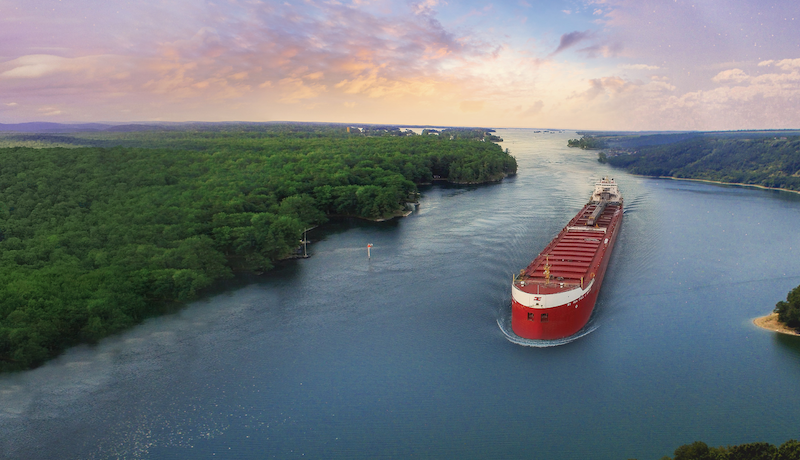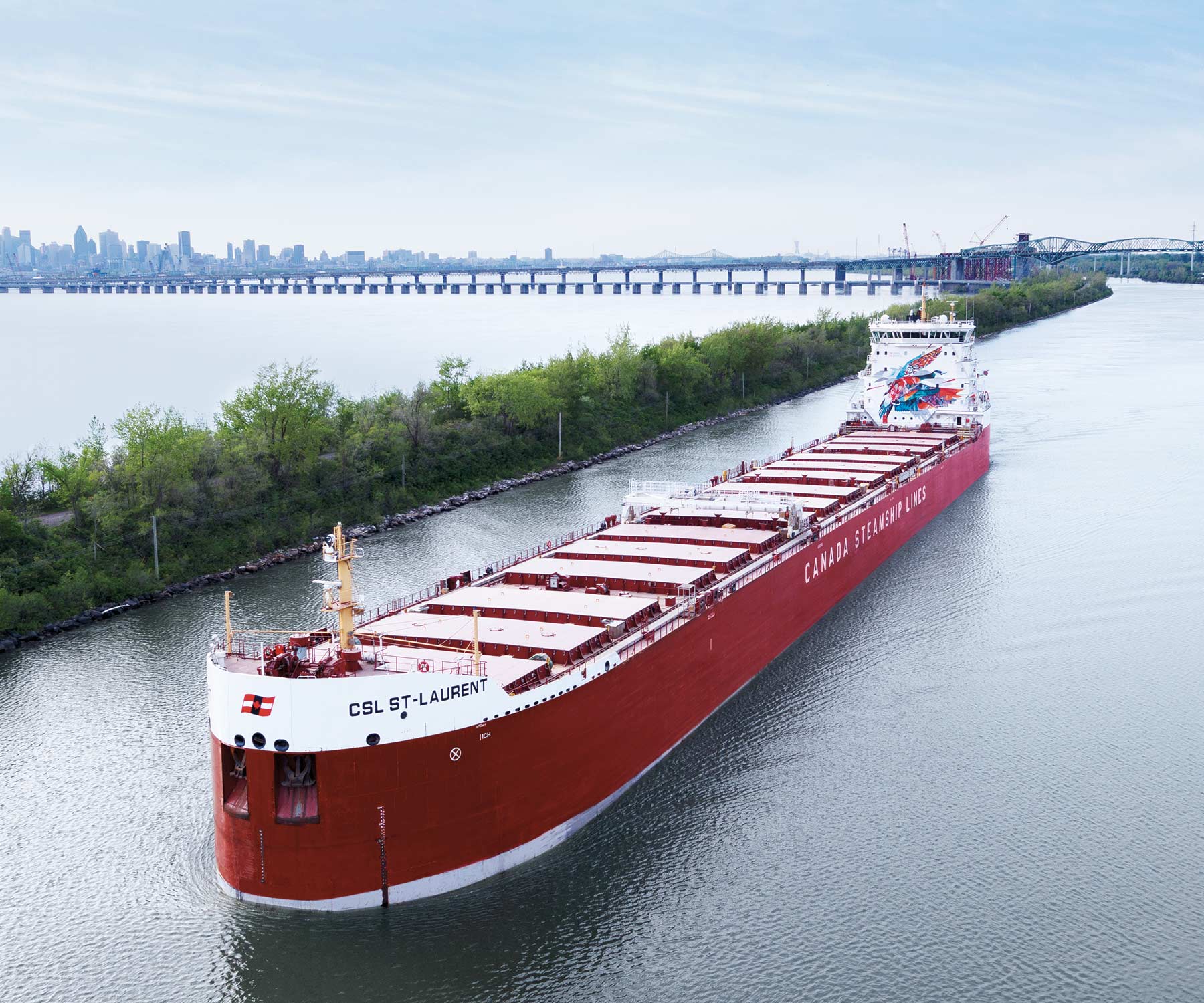
Sustainability
Innovating for the Future
We take pride in being at the forefront of innovation, as we work towards a greener, cleaner, and safer world. By investing in research and development across a wide range of advanced solutions, we strive to lead the marine industry in making a positive impact on the environment and enhance the performance of our fleet to better serve our customers.

Progress on Decarbonization
Our extensive B100 biodiesel program has unequivocally demonstrated the effectiveness of biofuel as a powerful tool in achieving net-zero emissions today. By using biofuel, we have not only reduced our own carbon footprint but also contributed to the mitigation of supply chain emissions for our customers. We encourage others to join us in embracing this effective and forward-looking solution to accelerate the transition to a cleaner marine sector.
Biodiesel is a drop-in fuel option for vessels that does not require retrofitting or major modifications to ships or infrastructure. The fuel can be delivered through existing supply and bunkering facilities and, depending on the source of feedstock, can reduce well-to-wake greenhouse gas emissions by over 80%.
We are implementing a series of upgrades aimed at improving the energy efficiency of our fleet in compliance with EEXI requirements. This includes the installation of engine power limitation (EPL) or shaft power limitation (ShaPoLi) devices on our ships. EPL devices use physical or electronic means to limit the power the main engine can use, while ShaPoLi devices measure power at the propeller shaft and stop the main engine from producing additional power once the EEXI-determined limit has been reached.
Additionally, we are continuing to install propeller boss cap fins across our fleet. By eliminating the hub vortex generated by rotating propellers, these fins reduce the amount of power required for a vessel to maintain a given speed, contributing to significant energy savings.
Our first trial using wind energy was launched in 2022 on MV Sunnanvik, a cement carrier within our joint venture fleet Eureka, which was equipped with sails. The vessel’s trading pattern made it prime candidate among our vessels for this modification. The sails are projected to yield a 10% reduction in fuel consumption, resulting in overall fuel savings of 5%.
One promising approach to achieving zero CO2 emissions is to electrify our ships by installing batteries and using renewable shore power when in port. We have pledged to support the Port Authority of New South Wales and the New South Wales government in bringing shore power to the Bays Port area in Sydney, where our pneumatic cement carriers MV Akuna, MV Wyuna, and MV Kondili discharge close to 500,000 tonnes of cement per year.
We will retrofit our pneumatic fleet with the necessary equipment to enable our vessels to use renewable shore power during discharge operations. By using shore power, we can replace our ships’ consumption of up to 460 tonnes of marine diesel oil, and reduce up to 1,500 tonnes of CO2 equivalent emissions. Connecting to shore power will also eliminate NOx , Sox and other airborne particulate matter from vessel stacks.
Leveraging Digitalization with O2
As part of CSL’s transformation journey, we are leveraging digital technologies to address the rapidly changing dynamics affecting our industry and customers.

Our proprietary Operational Optimizer technology, also known as O2, is a real-time vessel monitoring system that continuously supervises the status of vessel systems and identifies trends for analysis by our ship and shore teams.
Using technologies such as onboard sensors, geo-localization and real-time monitoring, O2 provides the key data and reports necessary to ensure environmental, operational and energy efficiency systems operate at the height of performance. The technology allows crews to immediately course correct navigational and engineering systems and processes to ensure top performance.
Not only does this improve the overall operational efficiency of a vessel, it also simplifies reporting, helps to manage vessel and voyage costs, and enhances communication.
The capabilities and applications of O2 continue to evolve to adapt to the needs of both ship- and shore-side requirements. New feature are continuously being developed and added.

Benefits of O2
O2 connects crew members and office staff through real-time digital dashboards.
For the crew
O2 helps manage environmental compliance, speed, pilotage, fuel efficiency and soundings, prediction of estimated time of arrivals and cargo uplift.
For office STAFF
O2 provides real-time visibility on a single source of truth for vessel situational awareness and fuel levels, and tracks estimated arrival times.
FOR CUSTOMERS
O2 optimizes vessel fuel consumption and enhances operational reliability by automatically detecting system anomalies using data and complex analytical tools.

Vessel Design Optimization
We have a proud history of working closely with our customers to develop tailored, innovative, and sustainable marine shipping and handling solutions. Our skilled technical teams partner with naval design and engineering experts to deliver top-notch bulk material handling systems for both shipboard and shoreside applications. With every vessel design, we prioritize safety and sustainability, ensuring outstanding performance and a greener future for the maritime industry.
The design of all new CSL ships, such as the new series of vessels currently under construction to service the CSL International Pool, will exceed the IMO’s Energy Efficiency Design Index (EEDI) requirements for Phase 3. The vessels in the new series have been designed with an optimized hull form and energy-saving devices, such as pre-shroud vanes, hub vortex absorbed fins, and a fuel-efficient slow-speed MAN Tier III main engine. The main engine can also be retrofitted to burn methanol, giving these ships a “methanol-ready” class notation.
Artificial Intelligence Research
CSL is leading an ambitious research project that leverages artificial intelligence (AI) to optimize scheduling, improve arrival time estimation and reduce fuel consumption in the marine industry. The project, which is funded by the Government of Quebec will establish a solid foundation for the application of AI and advanced analytics towards greener, safer and more sustainable marine transportation.
